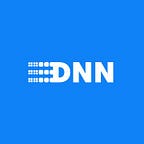There’s no question fake news is a topical subject.
It was the fervent theme of Saturday’s White House Correspondents’ Dinner and the raison d’etre for the launch of citizen journalism platform Wikitribune by Wikipedia co-founder Jimmy Wales.
While we support Wikitribune validating the community-driven model that DNN is also based on, we fundamentally disagree with the notion that news is broken. The news itself is not broken, the system through which news is created is broken and we believe we have the answer with DNN.
The cultural wave and backlash against fake news is so strong in fact that, on Saturday, what is typically an opportunity to poke fun at the sitting administration became a focused effort for the mainstream media and commentators to highlight a renewed fervour to maintain fair and objective reporting, which is a staple of any truly free and democratic society.
The issue remains: Who is the authority on truth? Who determines what is factual, exaggerated, or boldly inaccurate?
Freedom of the press is a pillar of any democratic society and the news media have a very important role to play. They are there to inform, to educate and to be the impartial purveyors of the unadulterated fact so citizens can form opinions and conclusions of their own.
The question should be reframed from, “Is the news media fake?” to, “Has this piece of writing been adequately validated?”
As a society we can assert authenticity with community validation. But leveraging a community to determine what is factually accurate can only be effective if compensation for community participants is both equal and transparent.
News is not broken, the system through which news is created is broken.
The way news is created today, information-seekers, in other words, news consumers, are at the will of the publisher and as a by-product the corporate interests that fuel the publication via the advertising revenue, the age-old newspaper business model.
At Decentralized News Network we believe the way to combat this is to, for one, reconsider the approach to writer compensation. Ultimately, the community ought determine who is paid and for what, based on the overall quality of the work.
Reputations on DNN are built on a user staking their DNN tokens to perform the task of writing or reviewing. In addition, reputations are built on how many of those tasks were approved by the community and successfully completed.
The DNN platform is based on the Ethereum blockchain and uses smart contracts to compute staked tokens and to determine a user’s reputation or community validation.
Leveraging the Ethereum blockchain also ensures true and real-time transparency of payouts, the general use of tokens on the platform, and most important, creation and dissemination of news.
Trust in media faces an all-time low. This is a poignant statement for this age of news reporting.
According to a September 2016 Gallup poll, Americans’ trust and confidence in the mass media “to report the news fully, accurately and fairly” has dropped to its lowest level in Gallup polling history, with just 32 percent saying they have a great deal or fair amount of trust in the media.
This is down eight percentage points from last year. Gallup began measuring media trust levels in 1972.
Join us on May 10, 2 PM EDT (11 AM PDT) on Reddit for our live AMA event where we field any questions or comments regarding our decentralized news platform and our upcoming plans. The event will be hosted at r/ethereum. We look forward to the discourse.
